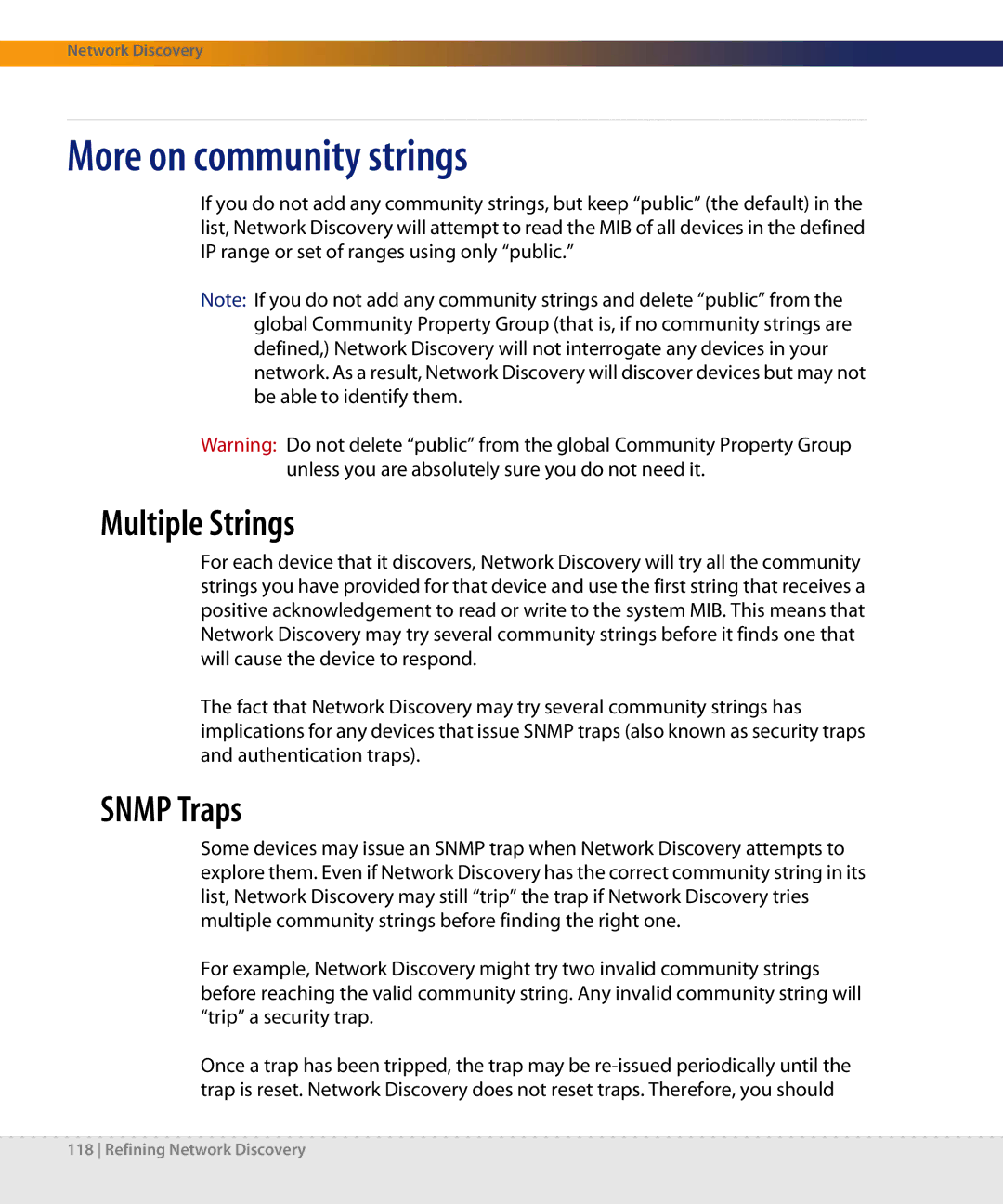
Network Discovery
More on community strings
If you do not add any community strings, but keep “public” (the default) in the list, Network Discovery will attempt to read the MIB of all devices in the defined IP range or set of ranges using only “public.”
Note: If you do not add any community strings and delete “public” from the global Community Property Group (that is, if no community strings are defined,) Network Discovery will not interrogate any devices in your network. As a result, Network Discovery will discover devices but may not be able to identify them.
Warning: Do not delete “public” from the global Community Property Group unless you are absolutely sure you do not need it.
Multiple Strings
For each device that it discovers, Network Discovery will try all the community strings you have provided for that device and use the first string that receives a positive acknowledgement to read or write to the system MIB. This means that Network Discovery may try several community strings before it finds one that will cause the device to respond.
The fact that Network Discovery may try several community strings has implications for any devices that issue SNMP traps (also known as security traps and authentication traps).
SNMP Traps
Some devices may issue an SNMP trap when Network Discovery attempts to explore them. Even if Network Discovery has the correct community string in its list, Network Discovery may still “trip” the trap if Network Discovery tries multiple community strings before finding the right one.
For example, Network Discovery might try two invalid community strings before reaching the valid community string. Any invalid community string will “trip” a security trap.
Once a trap has been tripped, the trap may be
118 Refining Network Discovery
